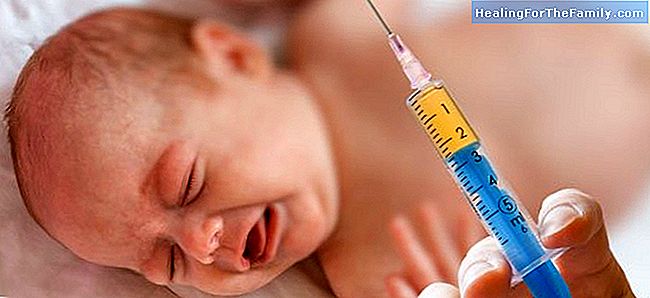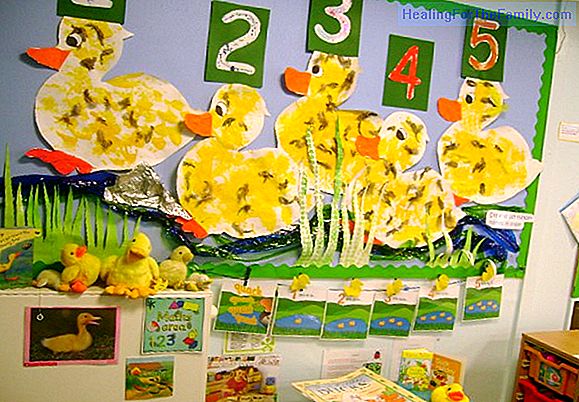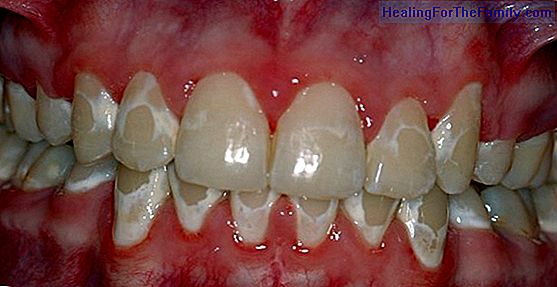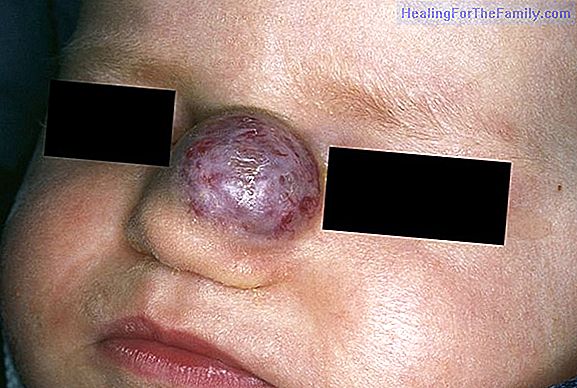When to vaccinate children against the flu
The influenza virus has the ability to change (mutate) from year to year, that is, each year is different. In this way, our defenses can not recognize it and that is why it can cause us the same disease again and again. It does not generate immunity after infection, as it does in the case of measles
The influenza virus has the ability to change (mutate) from year to year, that is, each year is different. In this way, our defenses can not recognize it and that is why it can cause us the same disease again and again. It does not generate immunity after infection, as it does in the case of measles or rubella, for example.
For this reason, hay each year a different vaccine has to be manufactured, adapted to the viruses that are believed to be present during the flu season.The effectiveness of influenza vaccine in children
Although it is very variable, the effectiveness of influenza vaccine in children is limited. In children under 2 years of age, efficacy is low, and between 2 and 9 years of age it is estimated at 50-65%. The activity of the vaccine is variable because it also depends on the degree of similarity between the strains of the viruses included in the vaccines, and the viruses that are finally circulating during the flu season.

Vaccination against influenza is annual and must be administered during the fall of each year (October to December).
Which children should be vaccinated against the flu
In children, currently, the influenza vaccine is recommended after 6 months of age and only in those with underlying diseases that make them more prone to complications:
1 Chronic respiratory disease (such as cystic fibrosis, bronchopulmonary dysplasia, bronchiectasis, asthma, etc.).
2. Severe cardiovascular disease (congenital or acquired).
3. Chronic metabolic disease (for example, diabetes mellitus, inborn errors of metabolism, etc.).
4. Chronic kidney disease (such as kidney failure, nephrotic syndrome, etc.) or liver.
5. Chronic intestinal inflammatory disease.
6. Congenital or acquired immunodeficiency (includes the administration of oral corticosteroids at high and maintained doses).
7. Children without a spleen or those that do not work (functional or anatomical asplenia).
8. Oncological disease (cancer).
9. Moderate or severe hematologic disease (severe anemia).
10. Chronic neuromuscular disease and moderate or severe encephalopathy.
11. Moderate or severe malnutrition.
12. Morbid obesity.
13. Prematurity.
14. Down syndrome or other genetic disorders with risk factors.
15. Continuous treatment with acetylsalicylic acid.
16. Pregnancy in adolescents.
Healthy children should also be vaccinated after 6 months, healthy adolescents and adults
who live with patients at risk con (with the diseases described above). Other indications, such as the systematic use of small children attending nurseries, are currently being debated. In general, healthy children do not need vaccination. However, the Vaccine Advisory Committee of the Spanish Association of Pediatrics (CAV-AEP) considers that children older than 6 months, healthy and not included in the aforementioned risk groups, can be vaccinated against seasonal flu if their Parents request it and their pediatrician considers it convenient. This preventive attitude provides the vaccinated child or adolescent with direct individual protection, as well as favoring indirect family and community protection.












